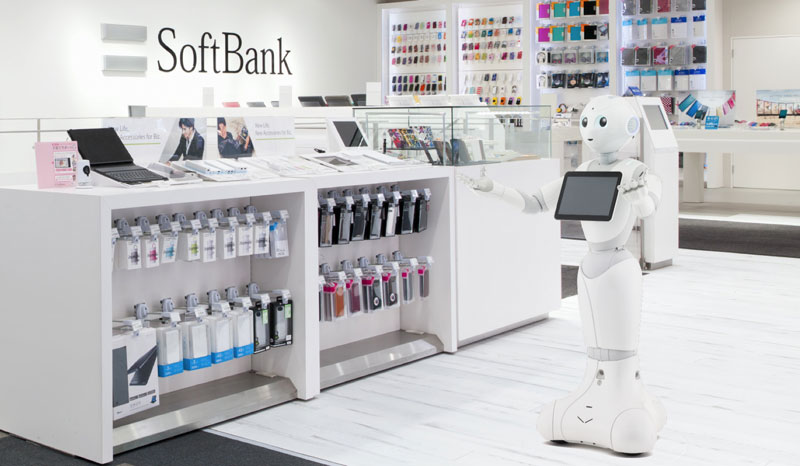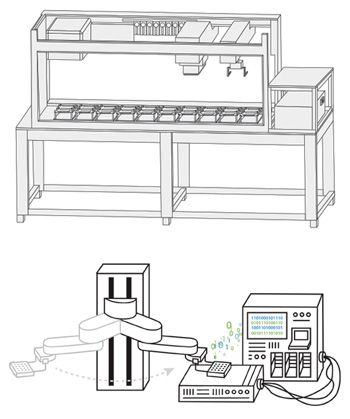
Robohub.org
Zymergen gets $130 million from SoftBank and other VCs

SoftBank, the Japanese telecom conglomerate, led a group that included Iconiq Capital, Prelude Ventures, Tao Capital Partners, and seven others in a $130 million funding round for Zymergen to help the company grow its workforce and scale its operations in Silicon Valley.
Zymergen is a startup with a focus on biology, analytics and robots. The company is attempting to produce industrial chemicals used in making products such as soap, ink and paint – a $3 trillion market according to Fortune Magazine. Zymergen creates the building blocks of these products from non-petroleum sources and creates new kinds of chemicals that would otherwise be difficult or impossible to develop. The creation of the microbes used by Zymergen are automated in what they call ‘Robotics for high-throughput biology.’
A recent Fortune article describes the process here.
“The company has a robot workforce to do things like stir liquid around in a petri dish while human scientists supervise thousands of robot-controlled trials in a given week. Zymergen then takes the data from these microbe experiments and uses a proprietary algorithm to sort through millions of different genetic combinations to guide the experiments and develop the best chemical.”
Zymergen attempts to precisely automate every step and can build and test thousands of strains enabling quicker and predictable breakthroughs. Their automated lab generates more data than manual lab work and they feel that this level of automation and analytics speeds up the data capture and improves operations and engineering.
“Our platform enables us to process and prioritize the enormous volume of data we collect to efficiently explore the near infinite design space for microbes. Prioritizing from among vast exploration possibilities [by decoding biology with machine learning] is the key to successfully engineering new strains. Our proprietary software lets us review large regions of the genome to pinpoint areas of interest which then guides additional tests with increased precision and reliability.”
Ginkgo Bioworks, a Boston startup attempting to do the same sort of thing, also received $100 million in funding in June. With those funds the company plans to obtain 600 million base pairs of manufactured DNA and from that develop not-pharmaceutical manufacturing processes in new areas such as commodity chemicals, industrial enzymes and human health markets.
According to TechCrunch, Ginkgo currently makes products for the flavor, fragrance and food industries as well as works with DARPA to produce probiotics that will help U.S. soldiers stave off stomach bugs they might pick up overseas.
Ginkgo will also be using some of the cash to finish building Bioworks2 – a rendering shown to the right. The new, 70,000 square-foot automated facility is being built to test prototypes of Ginkgo’s designer DNA and create those new products.
tags: c-Business-Finance, Frank Tobe, SoftBank, The Robot Report



